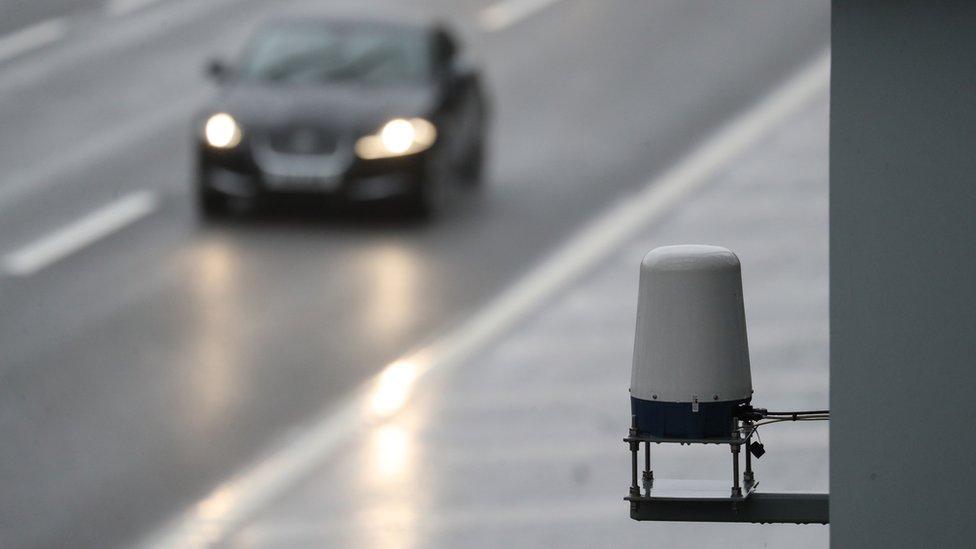Smart motorways: Highways England referred to CPS over M1 death
- Published
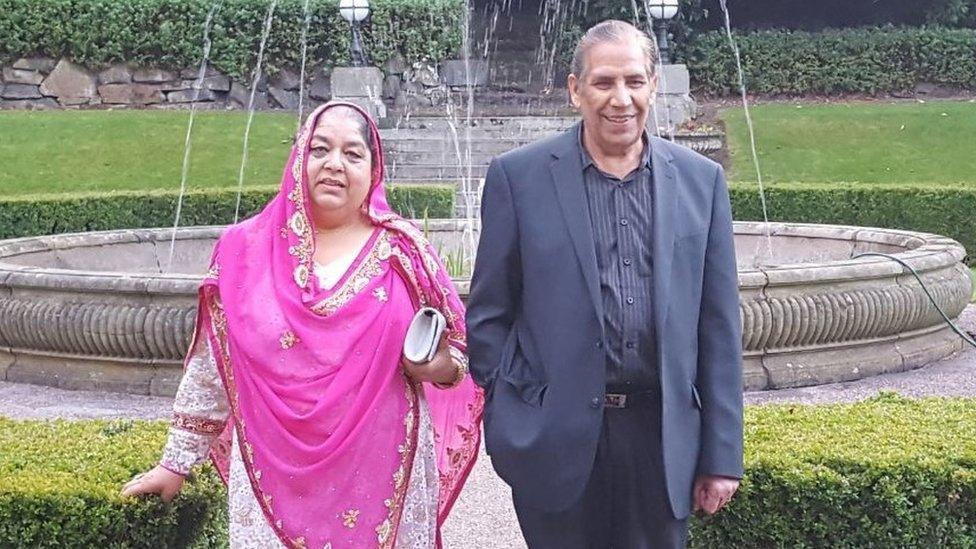
Nargis Begum died after the car she was travelling in with her husband Mohammed Bashir broke down on a smart motorway
Highways England should be investigated over possible manslaughter charges after a woman's death on a smart motorway, a coroner has said.
Nargis Begum, 62, from Sheffield, was killed after her car broke down on part of the M1 with no hard shoulder.
Her own vehicle was hit and ploughed into her, and the length of time it went undetected was highlighted by South Yorkshire coroner Nicola Mundy.
Highways England said it did not believe it had committed any offence.
Ms Mundy suggested the government-owned company should be referred to the Crown Prosecution Service (CPS) to consider if manslaughter charges were appropriate.
Previous hearings into Ms Begum's death in 2018 have heard that 16 minutes elapsed between her Nissan breaking down near Woodall Services and the crash.
It took a further six minutes before warning signs were activated.
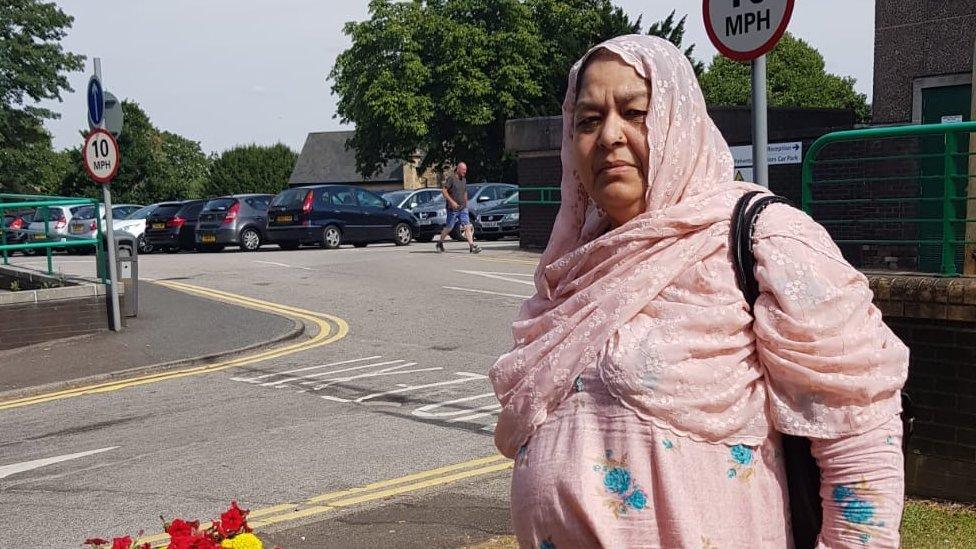
It took 22 minutes for warning signs to be switched on after the car Mrs Begum's was travelling in broke down
At the latest pre-inquest review hearing at Doncaster Coroner's Court, Ms Mundy outlined factors behind her decision to refer the case.
She said "nobody has responsibility for monitoring cameras" feeding footage from smart motorways and drivers were unaware "the onus is on them" to report any incidents.
Speaking after the hearing, Mrs Begum's daughter, Saima Aktar, said she was pleased the CPS would look into her mum's death and the use of smart motorways.
She said it had been "incredibly difficult" for the family to come to terms with her mother's death, especially for her father Mohammed Bashir, who had been driving.
'No constant monitoring'
Highways England is a Government-owned company responsible for managing England's motorways and major A-roads.
Nicholas Chapman, representing the firm, said footage from a CCTV camera covering the scene of the crash would have been sent to a "busy" regional control centre staffed by "seven or eight" people.
But he said staff would also be receiving images from about 450 other cameras and there was "no constant or routine monitoring".
He added that there was no evidence any of the operators did "anything else other than conscientiously go about their duties".
Thirty-eight people have been killed on smart motorways across the country in the past five years.

Follow BBC Yorkshire on Facebook, external, Twitter, external and Instagram, external. Send your story ideas to yorkslincs.news@bbc.co.uk, external.
Related topics
- Published18 January 2021
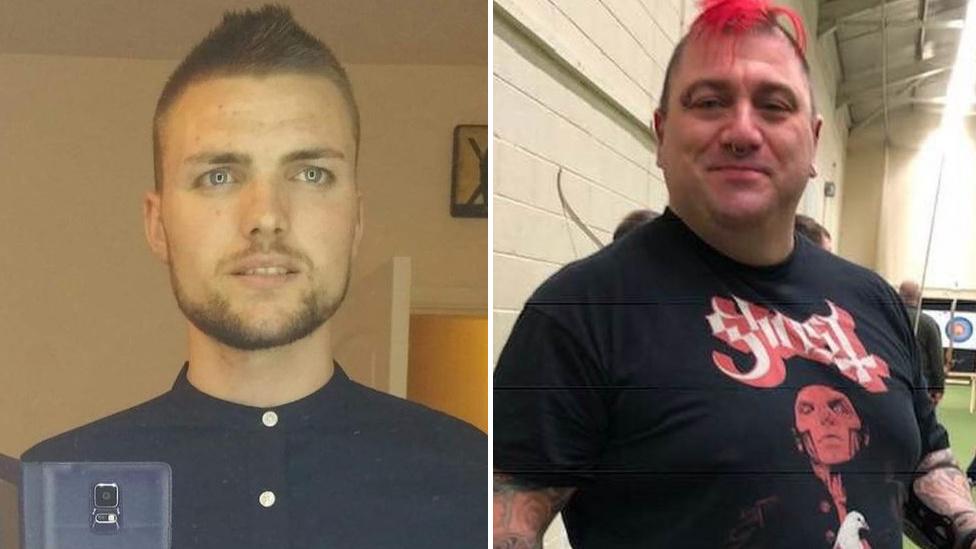
- Published22 December 2020
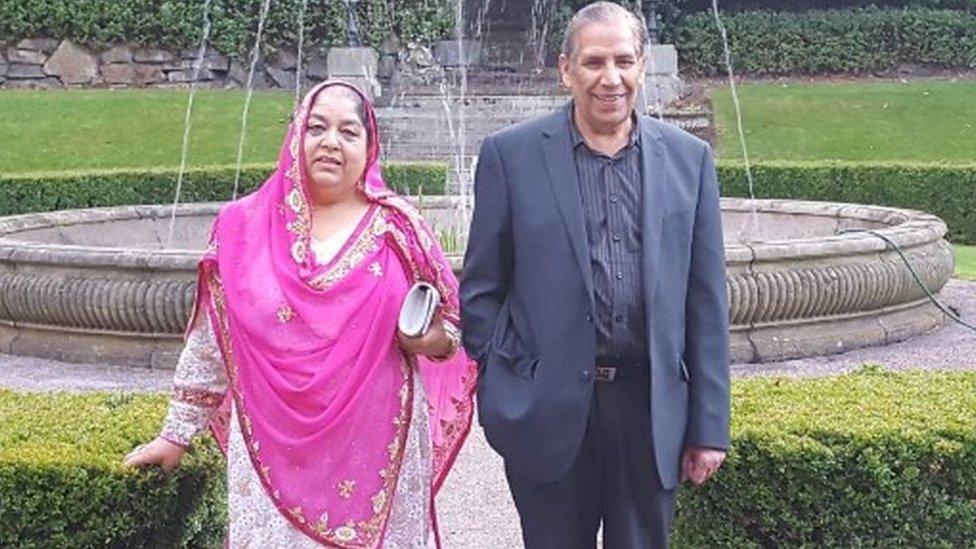
- Published4 February 2021
